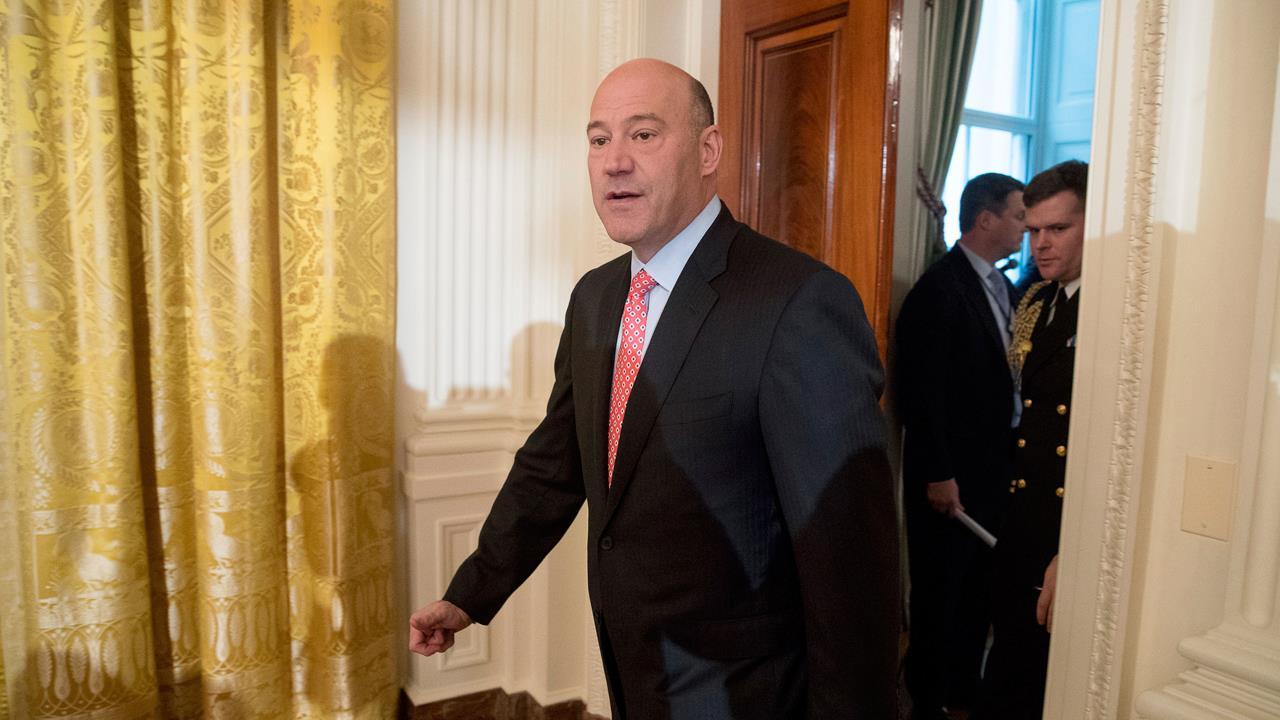Gary Cohn: Middle-income tax cuts are non-negotiable
U.S. National Economic Director Gary Cohn said on Friday that while the Trump administration is open to negotiating the specific terms of tax reform, it won’t budge on two items: a middle-class tax cut and a corporate tax cut.
“The two areas where we are very committed and we really don’t want to negotiate, and we won’t negotiate, is a middle-income tax cut and a business tax rate that makes us competitive with the rest of the world,” Cohn told FOX Business’ Stuart Varney of Varney & Co. “We’re negotiable how we’re going to get there.”
While the tax writers have put forth a proposed 15 percentage point cut to the corporate tax rate, one controversial item the administration has proposed in order to level the playing field for middle-income Americans is the elimination of state and location tax deductions (SALT).
Eliminating the popular deductions could increase federal revenue by $1.3 trillion over the next decade, according to the Tax Policy Center. However, as a result, about 24% of taxpayers nationwide would see an increase in taxes. Those increases would be outsized for residents in high-tax states such as New York and California, where resident taxpayers would pay more than 30% of the tax increase from trashing the deduction. Additionally, individuals with incomes in excess of $100,000 would have the largest tax increase in both dollars and as a percentage of income – paying 90% of the increase associated with eliminating SALT.
Cohn said the White House perceives these deductions as a loophole that primarily benefits the wealthy.
“We are committed to make sure we have a middle income tax cut. To be able to take away a loophole that really only benefits the wealthy and be able to use that money and deliver a middle-income tax cut, we think that’s really important … it takes something away from certain states and levels the playing field for all states,” he said.
Republicans only have 44 scheduled working days left to deliver tax reform before the end of the year. Cohn said the administration is involved every day in figuring out how to craft the right plan that will amass the necessary votes in Congress.
“We’re going to do everything we possibly can to get it done [before the end of the year] … it is our number one economic agenda right now,” he said.
Congress cleared its first hurdle in the path to tax reform on Thursday when the House of Representatives approved the budget resolution for fiscal year 2018. The measure was also approved by a Senate panel on Thursday evening and is expected to be put up for a larger vote in the chamber later this month. The budget contains the reconciliation mandate for tax reform, which will allow the Republican Party to use the fast-track process when it votes to approve the legislation later this year. It also sets aside money for tax cuts. In a statement released Thursday, Trump applauded the GOP’s efforts, calling it “a pathway to fix our rigged and burdensome tax code.”
On Thursday, a source with knowledge of the matter told FOX Business that the budget resolution is expected to pass both chambers in late October or early November, after which the GOP will introduce the tax reform bill for discussion.




















